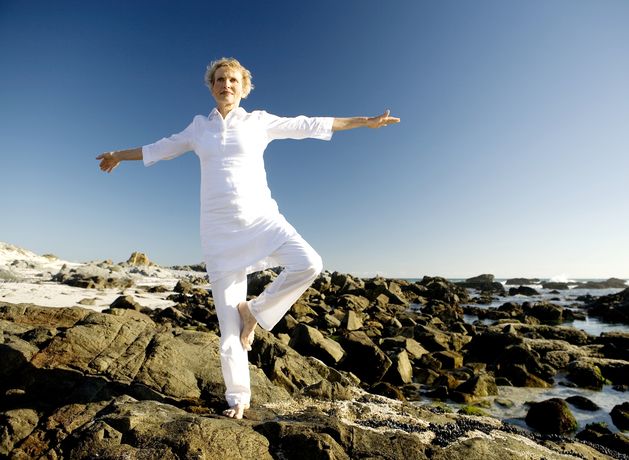Sports medicine doctor Ruud van Tienen explains why balance is important and how to develop it. “The human sense of balance is one of the most beautiful things in the human body,” says Dr. Van Tienen of Ghent University. “This allows us to move and survive in this world.
“Humans have a very narrow base of two feet and go straight up from there. We are actually skyscrapers that stay upright and move all the time.”
To stay upright and maintain good balance, Dr. Van Seenen says three things need to work together.
“Good vision is important. The eyes must be able to see what is happening around them. In addition, the middle ear is a balance organ, sensing in which direction a person is moving. .Finally, there are special sensors, ‘proprioceptors’, in several places in the body, namely tendons and muscles,” he explains. .
Together, these three send information to the brain. “The signals are processed there so that the brain has complete knowledge of where it is in space.”
According to Dr. Van Seenen, the presence of three is no coincidence. “To have good balance, he needs at least two of these three elements to work well,” he says. “This proves once again how important balance is to humans. Nature actually has a kind of backup system built in for balance.”
At an exercise medicine clinic in Rio de Janeiro, Brazil, Brazilian scientist Dr. Claudio Gil Araujo and his team followed more than 1,700 participants over a 10-year period.
The study, published in the British Journal of Sports Medicine, focused on middle-aged people and looked at how they performed all kinds of tests.
For example, there was an exercise in which participants had to stand on one leg, put their arms by their sides, and look straight ahead. They had to maintain the position for at least 10 seconds. Longitudinal studies have shown that people who fail to do this after three attempts have an 85% chance of dying sooner from any cause.
Fortunately for the middle-aged participants, about 80 percent of participants passed the test. However, as the participants’ age increased, the proportion decreased, with 37% of men and women between the ages of 66 and 70 no longer being able to successfully exercise.
Today’s news in 90 seconds – March 1st
Dr. Van Seenen agrees that as we age, our balance shifts. “In fact, it happens surprisingly quickly. Balance starts to deteriorate between the ages of 40 and 50, because that’s when the three important systems that support balance also deteriorate. These balances become worn out. It’s easy.
“You have osteoarthritis in your ankles or knees, which makes the sensors there less effective. Or you have an ear infection that is doing some damage to the balance organs in your middle ear…”
However, whether you’re 50 or 90, you can train to improve your balance. “For example, nursing homes may offer Tai Chi or Pilates to train the balance organs in the middle ear as a fall prevention method. Even doing just five squats a day can be a great strength training exercise to strengthen your muscles. You can do.
“It’s also important to have your glasses adjusted so you can see clearly if they’re not working properly. That means you should try to improve your balance in every way possible. It all comes down to one thing: rather, it depends on a whole range of different systems.”
If this is not done and the balance deteriorates significantly, the team led by Dr. Jill Araujo has a point. That means there is a greater risk of dying sooner.
“This is mainly about secondary issues,” says Dr. Van Seenen. “Balance is one of the most beautiful things, because it determines how we move in the world.
“When balance decreases, people rapidly lose autonomy,” he explains. “They get anxious. And they prefer to stay home instead of going out for coffee with friends because they don’t want to risk falling or tripping again. And they sit on the couch. Muscle strength This results in a decline in social contact and a vicious cycle that leads to mental, emotional and physical deterioration.”

